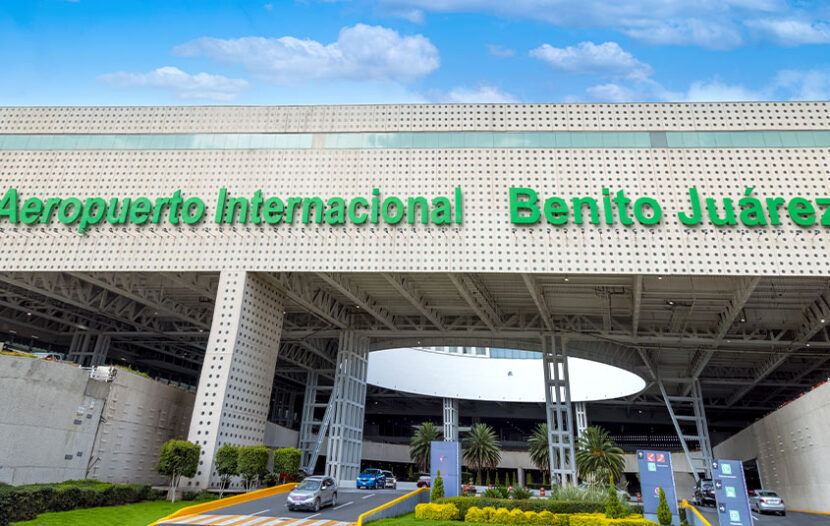MEXICO CITY — Mexico’s armed forces are taking control of the capital’s main airport, and the government plans to give the military control of nearly a dozen more across the country as the president takes aim at corruption and mismanagement.
President Andres Manuel Lopez Obrador has been setting the armed forces to a wide range of nontraditional tasks since he was elected in 2018, creating concerns about the separation of the military from civilian life.
A new airport was built by the army outside Mexico City a year ago at a cost of US$4.1 billion. It is run by the military but little used.
Lopez Obrador says the old airport, the country’s busiest, will be run by the navy.
The navy took charge of security at Mexico City International Airport, or Benito Juarez, more than a year ago. It will soon have control of everything else, from customs and immigration to handling luggage and cleaning bathrooms, with the imminent publication of a presidential order to make that official.
The list of problems at Mexico City Airport has long included major drug shipments and illegal migration. Infrastructure was in disrepair, and a number of close calls were reported on the runways in recent years as the airport increasingly had trouble handling flights.
The airport also had a reputation for stolen luggage, mismanaged airline schedules, business without contracts and corruption.
Meanwhile, Lopez Obrador has gone to the armed forces for help throughout his term, giving them some immigration duties and control of ports and customs. They are also building major infrastructure projects such as a tourist train through the Yucatan Peninsula and a new airport in the same area. They even run plant nurseries and tourist trips to a former penal colony.
The airport, which is used by some 4 million travellers each month, will be “a company within a naval military entity,” Rear Adm. Carlos Velazquez Tiscareno, the airport’s 73-year-old director, said in a recent interview. But, he said, “this is not going to look like a military department.”
Unlike the capital’s other airport, Felipe Angeles, where National Guard troops take passenger tickets at the gate, at Benito Juarez the only uniformed military are the 1,500 marines deployed since February 2022 for security. The rest of the airport personnel will be civilians but “with clearer rules … that govern with more order and discipline,” Velazquez Tiscareno said.
The navy will form a company called Casiopea to run the airport and six others that have “deficiencies” and are “in the hands of organized crime,” Velazquez Tiscareno said. Among them will be Matamoros, across the border from Texas, and Playa del Carmen on the Gulf of Mexico.
Lopez Obrador has already said that he plans to have a dozen airports in the hands of the army or navy by the end of his administration in 2024. And by the end of this year, the military is scheduled to begin operating its own commercial airline.
The Mexico City takeover runs contrary to international aviation recommendations that clearly distinguish between military and civilian, said Rogelio Rodriguez Garduno, an aviation law expert at Mexico’s National Autonomous University. But the legal consequences of the move remain unclear.
Earlier this year, Mexico’s Supreme Court ruled that the transfer of the National Guard from civilian to military control was unconstitutional. Lopez Obrador left the guard under a civilian department but with a military operational chief.
While navy operational control could help some security issues, experts don’t believe it will resolve other problems.
The U.S. Federal Aviation Administration downgraded Mexico’s aviation safety rating in 2021, preventing Mexican airlines from expanding flights to the U.S.
FAA safety ratings of other countries are designed to measure those countries’ oversight of their airlines but do not mean that the airlines are unsafe.
In Mexico, corruption got to the point years ago that coded messages were sent using airport internal communications to hold up baggage inspections so drug shipments could pass untouched, according to testimony during the U.S. trial of former Public Security Secretary Genaro Luna. He was convicted of drug trafficking in February.
Mexico City has the country’s most important airport, and the navy is the branch of Mexican security forces in which the U.S. authorities have the most confidence, but the U.S. has not commented on the increasing power of the Mexican military.
“There are various airports in the country that have had big problems for many years, and they had to be fixed,” said Velazquez Tiscareno, himself a retired pilot.
In the past year, the navy’s security oversight has shut down some illegal business inside the airport, improved inspections and reduced stolen luggage, Velazquez Tiscareno said. Some airport workers confirm that, but note too that complaints about flight delays continue.
“It’s more peaceful,” said Luis Martinez, who’s been working at the airport for 25 years. But, he said, “people have the same complaints: flight delays and problems with luggage.”

